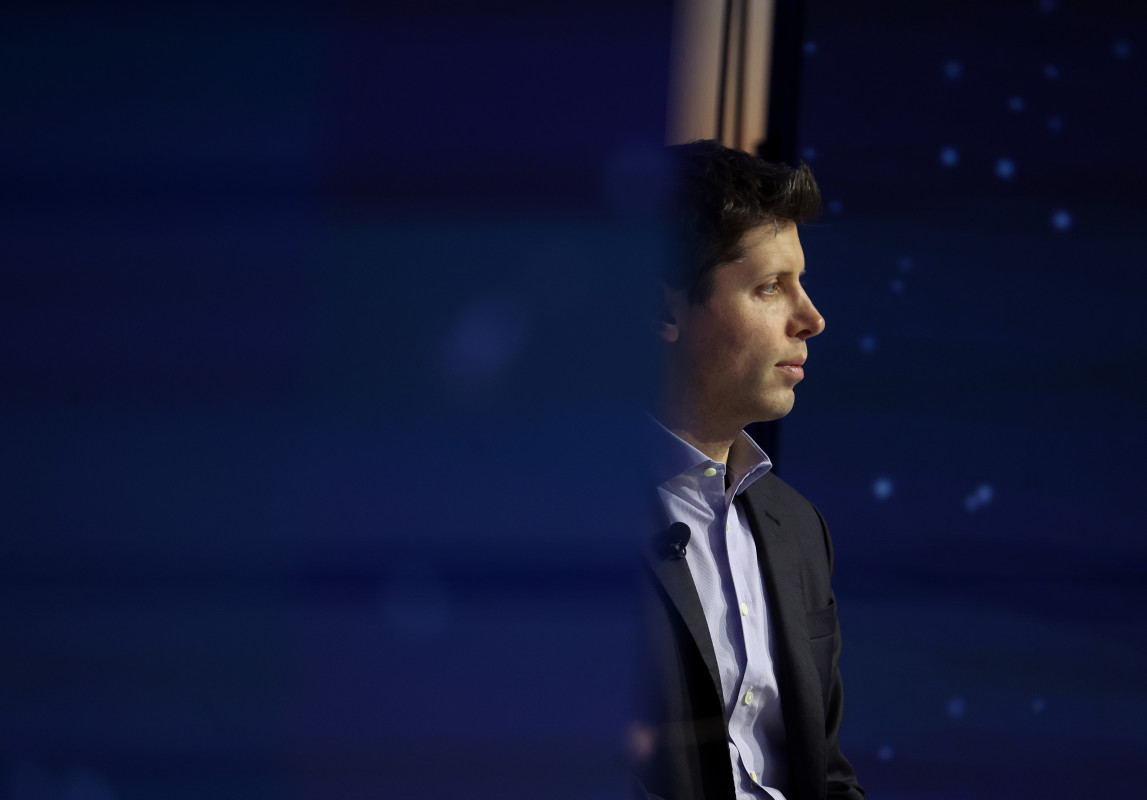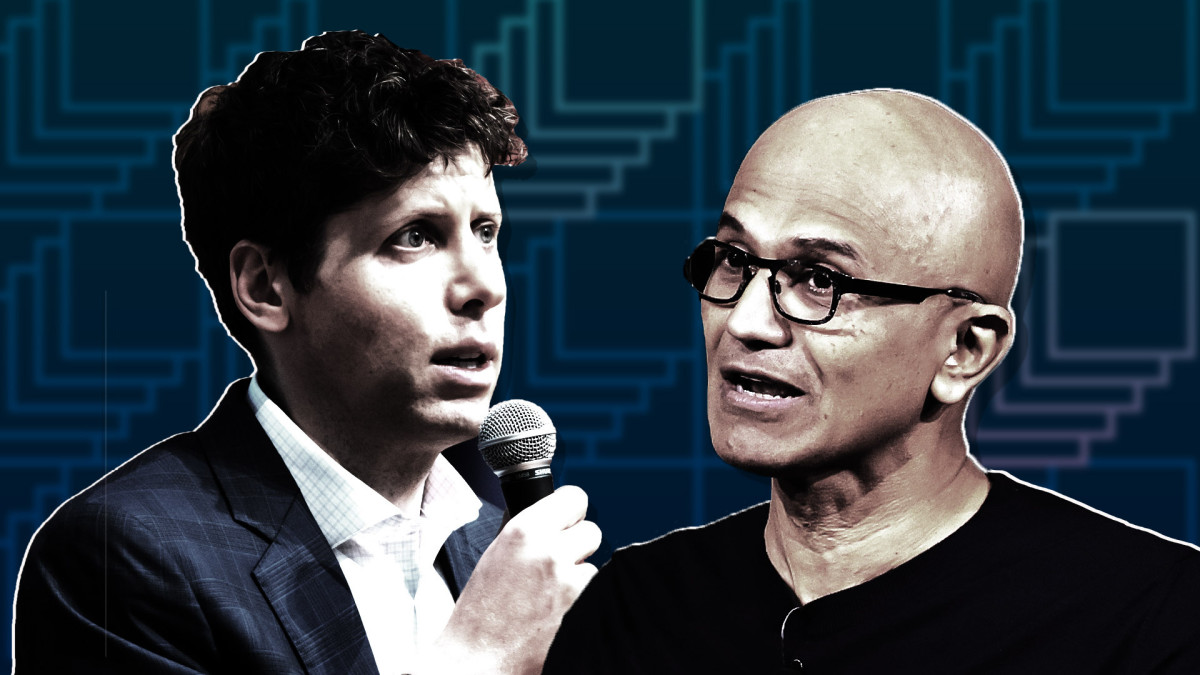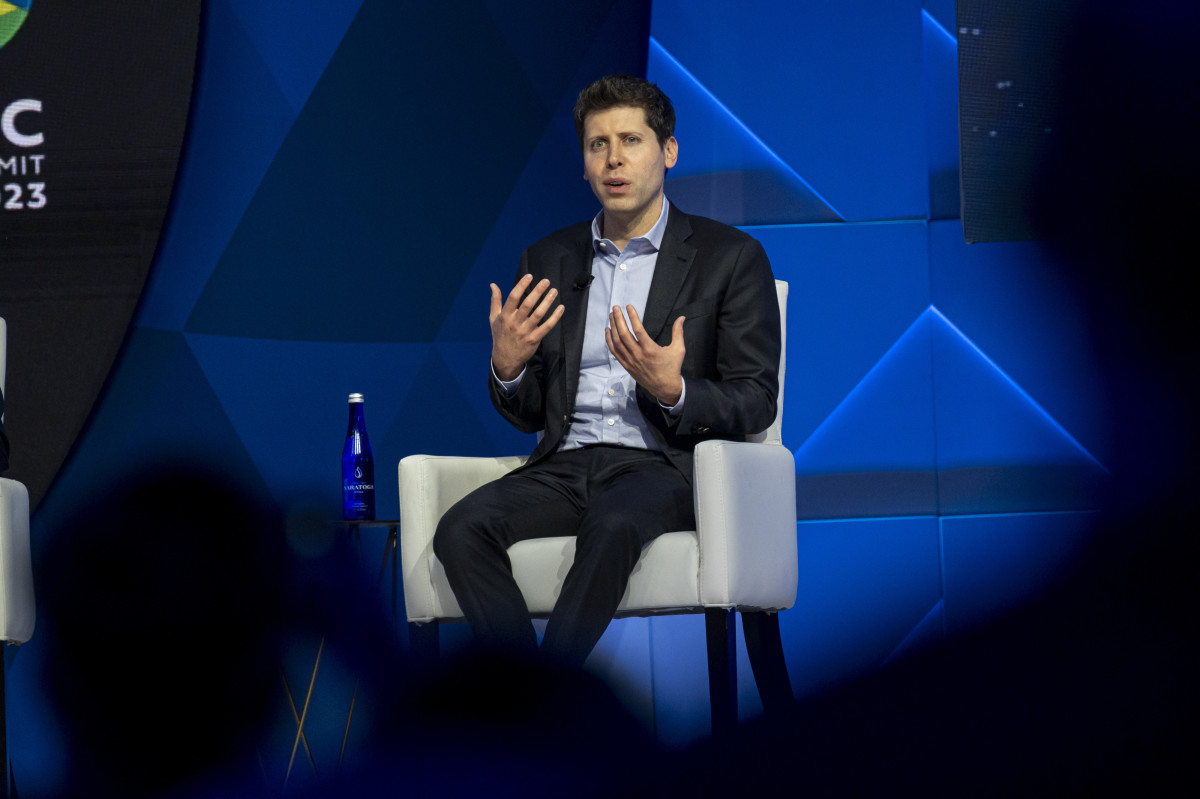
ChatGPT maker OpenAI said early Wednesday that its recently-ousted chief and co-founder Sam Altman will be returning as CEO. His return also marks the introduction of a new board, which includes Bret Taylor, Larry Summers and Adam D'Angelo.
"I love OpenAI, and everything I've done over the past few days has been in service of keeping this team and its mission together," Altman wrote in a post on X.
Altman said he's "looking forward" to returning to OpenAI and building on the company's partnership with Microsoft (MSFT) -).
Altman's triumphant return comes just five days after his sudden firing by OpenAI's board, which said that he had not been "consistently candid in his communications with the board, hindering its ability to exercise its responsibilities."
The company has not expounded upon this assertion; sources told The Verge that interim CEO Emmett Shear threatened to resign unless the board could provide evidence to support Altman's firing. Shear took part in the negotiations that resulted in Altman's return.
New board member Bret Taylor has spent 20 years bouncing around Silicon Valley. He started at Google in 2003, where he co-created Google Maps before serving as Facebook's CTO in 2009. He recently spent two years as a co-CEO at Salesforce, before leaving in January.
Summers is a former U.S. Secretary of Treasury, and D'Angelo — the only remnant of the previous iteration of the board — is also the CEO of Quora.
AI expert Gary Marcus said in response to the news that he's glad to see OpenAI back in business, but "bummed to see no women at all. Hopefully, the board will expand in due course."
I'm glad to see that OpenAI decided that the true problem wasn't any of the issues with their products (copyright, bias, hallucinations), it was having two women on the Board... and that's what they decided to fix.
— Sasha Luccioni, PhD 💻🌎🦋✨🤗 (@SashaMTL) November 22, 2023
"We may never fully know what happened," he added, saying the most important thing now is for OpenAI to stick to its non-profit mission of developing safe artificial intelligence "unconstrained by a need to generate financial return."
Part of the complexity around Altman's sudden ouster and subsequent return is that OpenAI is a hybridized combination of for-profit and non-profit organizations. The LLC is led by its non-profit board, whose sole responsibility is to humanity, rather than to its shareholders.
"No one person should be trusted, here," Altman said in June. "The board can fire me and that's important."
Altman and the board that just attempted to fire him had been at loggerheads for around a year, according to the New York Times. Some members of the board were worried that Altman was too focused on expansion, rather than safety, a balance the board reportedly wanted to strike.
Nearly all of the company's roughly 770 employees signed a letter threatening to quit unless the board resigned and Altman was reinstated.
As part of his return, according to The Verge, both sides have agreed to an external investigation into the ouster.

Getty/TheStreet
Satya Nadella, the CEO of Microsoft — which owns a $13 billion, 49% stake in the company — said he is "encouraged by the changes" to the board.
"We believe this is a first essential step on a path to more stable, well-informed, and effective governance," he said in a statement.
Elon Musk, who helped start OpenAI in 2015 before leaving the board in 2018, previously expressed concern about the events playing out at OpenAI. Musk wrote in several posts over the weekend that it is imperative for the public "to know why the board felt so strongly about their actions."
Deeply respect the public reversal on this. It has pained me to see how Ilya has been portrayed in media: I find him so thoughtful and earnest in trying to do right; he also seemed absolutely distraught in the wake of Sam’s dismissal, not coup-like in the least. Again, respect. https://t.co/OY9dynOPGj
— Steven Adler (@sjgadler) November 22, 2023
"If it was a matter of AI safety, that would affect all of Earth," he said.
But Altman's return, according to Musk, is a slightly better outcome than his relegation to Microsoft, which was hinted at Monday.
"OpenAI being (semi) independent is probably better for the world than merging with Microsoft," he said. "Less concentration of power."

Musk, often critical of OpenAI's relationship with Microsoft, has previously said that OpenAI would not exist without him.
"What exactly is the relationship between OpenAI and Microsoft? I do worry that Microsoft may be more in control than the leadership team at OpenAI realizes," he told CNBC in May.
Microsoft shares ticked up more than 1% in after-hours trading on the announcement.
Contact Ian with tips via email, ian.krietzberg@thearenagroup.net, or Signal 732-804-1223.
Get investment guidance from trusted portfolio managers without the management fees. Sign up for Action Alerts PLUS now.







